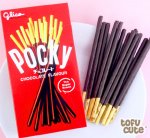Black American gamer here* who never liked the abbreviation PoC**, and this is kind of where I am. I appreciate the effort to be inclusive, and progress has been made. There's a LOT less whitewashing & stereotyping in the hobby than there was in the 70's, but the journey isn't over.This is a loaded subject if there ever was one, and it'll be interesting to see if this thread rises above....or is going to eventually get locked.
My thoughts:
1. WotC is trying. I will say that the current design team at WotC has shown itself to be in touch with the times and thoughtful in how they portray diverse groups. The article tends to acknowledge that while at the same time raising complaints. WotC has intentionally evolved the setting in a progressive way, to more mirror a post-imperialism setting. This move alone speaks to their intentions. And at the end of the day IMHO intentions matter.
2. Settings are generally "broad brush". The author takes issue with the historical inspirations being drawn from a hodgepodge of subcultures. I'm not sure what the alternative would be. A broad brush that picks the most interesting elements of various cultures over many centuries seems like an obvious approach from an adventure writing standpoint. The most classic D&D settings are a highlight reel mixing European middle ages and renaissance history with European folklore...Greek myths, French traditions, English knighthood all mashed up. Perhaps it is fair to say "it's a mashup and remix of histories and folklores...but this time Africa" and move on.
3. Does it boil down to design team representation? The article's author was nonplussed with a lack of POC on the design team. If the article's author discovered that POC were on the design team, would that have changed their opinion? I suspect it might, but have no way of knowing. As such, this may be the real takeaway for WotC. Have a person with the appropriate background [in this case, history/culture of Africa] on the design team, or a consultant with an expertise in that area giving feedback.
* please don't abbreviate that as BAG, that brings up the Brown Bag test.
https://en.m.wikipedia.org/wiki/Brown_Paper_Bag_Test
** IT'S MADE OF PEOPLE!!!





